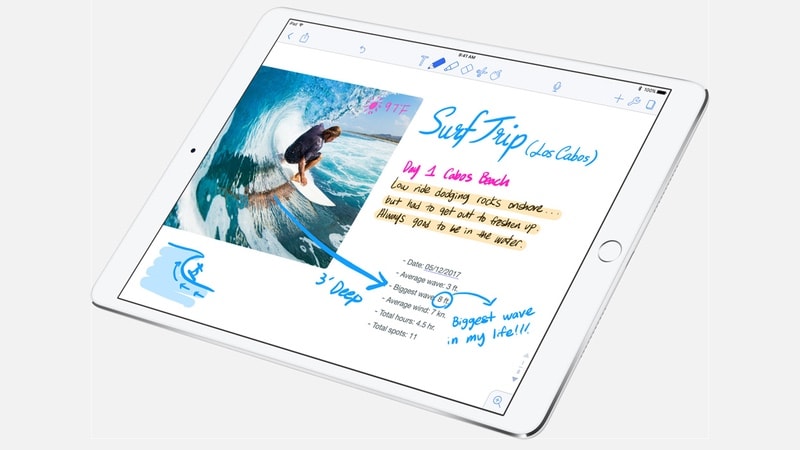After more than a year of vicious accusations and a flurry of lawsuits and counter claims, Apple and Qualcomm’s multibillion-dollar legal dispute is about to get serious.
Hearings in the three most important markets – the US, China and Germany – will soon determine whether Apple’s attempt to save itself billions in technology licensing payments by forcing one of the world’s biggest chipmakers to change the way it does business is legal.
Apple may be on the hook for $2.5 billion to $4.5 billion (roughly Rs. 1,700 crores to Rs. 2,700 crores) in unpaid fees, based on estimates for the amount per phone the company may be charged, a total that could be equivalent to about one-fifth of Qualcomm’s annual revenue. The iPhone maker has argued that Qualcomm uses its ownership of patents that cover the basics of how modern smartphones communicate to extract unfairly high payments and coerce it into buying chips. The chipmaker has countered that Apple is stealing its property by refusing to hand over fees for technology that the rest of the industry values and pays for.
“Trying to untangle the thicket of litigation with these two companies is a gargantuan task,” said Will Stofega, a mobile industry analyst at IDC.
The companies’ legal teams have been busy and are likely to stay that way. There are more than 50 separate intellectual property and antitrust proceedings filed across 16 jurisdictions in six countries, according to Bloomberg Intelligence analyst Matt Larson. While no single case will resolve everything, a number of decisions in the second half of 2018 may create an incentive to settle, Larson wrote in a recent research note.
Next week the International Trade Commission in Washington will begin a hearing on Qualcomm’s argument that Apple is infringing three patents. Qualcomm is asking the agency to ban imports of all iPhone 7 models that don’t have Qualcomm’s chips. The iPhone, which provides Apple with more than 60 percent of its sales, is manufactured in Asia.
Similarly, a court in Mannheim, Germany, is hearing a case by the chipmaker that argues iPhones using Intel Corp. chips infringe Qualcomm’s patents and should be excluded from access to Europe’s largest national market. The judge tentatively agreed with Qualcomm but put the case on hold while the European Patent Office decides whether the patent in question is valid.
And in China, the biggest market for smartphones, the Chinese Patent Review Board begins hearings this month and next to consider Apple’s request to invalidate patents that Qualcomm is trying to use against it. Decisions in those cases could come in the third quarter, according to Larson.
“China trumps them all,” said Stofega of IDC. “Western Europe is important, but it doesn’t match what they do in China. They’re in a fight for share, and they don’t want anything to impede their march.”
Qualcomm’s management have maintained that behind the heightened rhetoric of the legal accusations, the dispute is just a commercial negotiation. Once they prove the strength of their legal position, it’s likely that a settlement and resumption of normal customer-supplier relations will follow.
“Initially, we found ourselves on the defensive, responding to the false narrative that Apple had seeded. Everyone knew Apple, and no one knew how much of Qualcomm was inside Apple’s products,” said Don Rosenberg, Qualcomm’s general counsel. “I believe we’re in a transitional phase where our story is now out there, where the facts are speaking for themselves.”
An Apple spokesman declined to comment and referred to the company’s previous statements on the conflict. Apple has denied infringing any Qualcomm patents, and contends the ones in the litigation never should have been issued.
Qualcomm filed the complaint with the ITC “in the face of a rising tsunami of regulatory sanctions and litigation” against it, Apple said. “Qualcomm’s reaction has been to retaliate against those who dare challenge its entrenched monopoly, including Apple and Intel,” the iPhone maker said in a filing with the agency.
For Apple to shift its position “some government entity or court would have to be willing to put an injunction on the iPhone,” said Matt Ramsay, an analyst at Cowen Inc. Absent that, “I get the sense that this Apple thing could go on for quite a while.”
The ITC, German courts and China may be the entities that help force one side to blink. Each of those venues is known for speed, odds favouring patent owners and a greater likelihood that some sort of sales ban can be imposed on products found to infringe patents.
The case at the ITC “was brought as part of the larger scheme to raise the risk on Apple,” said Josh Landau, patent counsel for the Computer & Communications Industry Association, a Washington-based trade group that includes Intel, Alphabet Inc.’s Google and Facebook. If the trade agency issues an import ban on Apple products, “it would push them to a quicker resolution.”
For Qualcomm, an indication that Apple is going to prevail may add to investor and analyst concern that its lucrative licensing business, a unit that has been crucial to its ability to fund an industry-leading chip business, is going away.
A settlement is widely expected between the two behemoths, though the timing and terms are uncertain. The companies – and investors – are hoping the legal rulings will provide a road map for the eventual resolution.
© The Washington Post 2018


